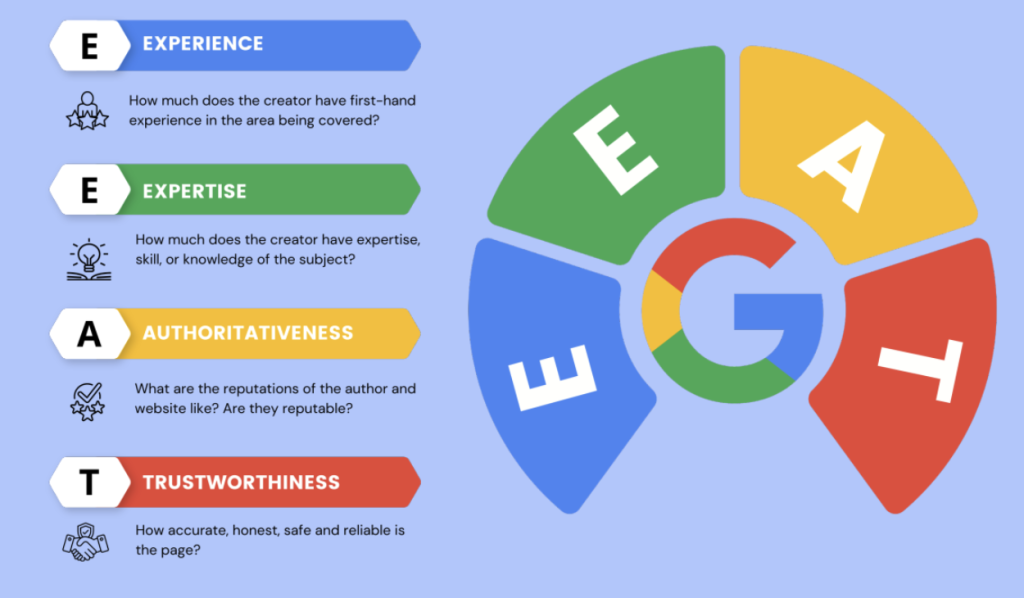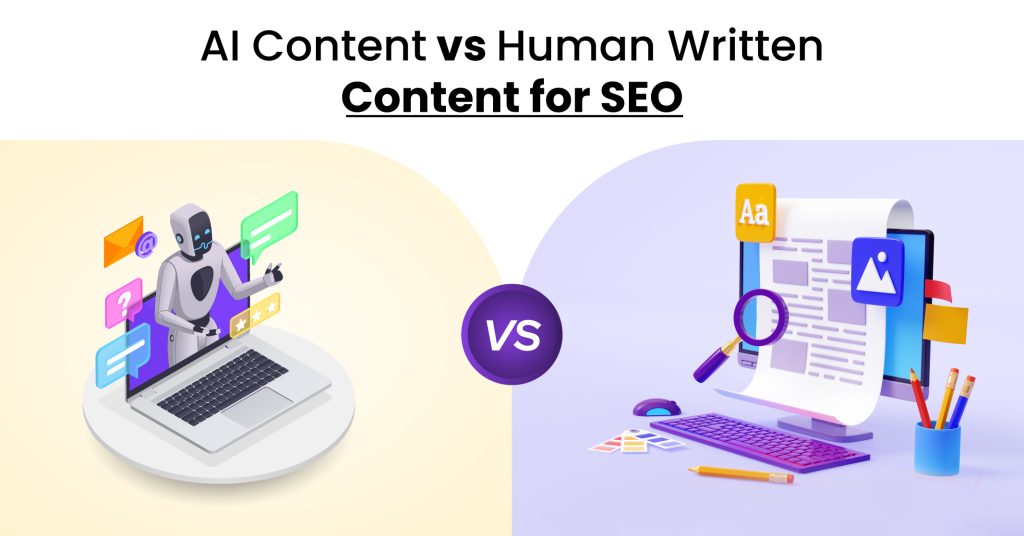In late December 2022, Google introduced an important update to its Quality Rater Guidelines (QRG), making changes that could affect how websites rank in search results. The update focuses on a key concept known as E-E-A-T, which stands for Experience, Expertise, Authoritativeness, and Trustworthiness. While this concept isn’t new, the addition of “Experience” signals a shift in how Google assesses the value of content. This update is significant, especially for businesses and marketers who rely on AI-generated content for SEO. Here’s a breakdown of the update and why AI-generated content may not measure up.
What is E-E-A-T?
E-E-A-T is a framework used by Google to evaluate the quality of content on websites. It has four main pillars:

1. Experience: This is the newest addition. Google now emphasizes the importance of content creators having real-world experience related to the topic they’re writing about. They want to know if the author is someone who has direct experience with the subject matter, not just theoretical knowledge.
2. Expertise: Content should be written by individuals who are experts in the field. This could mean professionals, scientists, or anyone with a solid track record in a particular subject area.
3. Authoritativeness: This refers to the recognition of the content creator or website as a trusted authority in the subject matter. Websites with established reputations are more likely to rank higher.
4. Trustworthiness: Trust is key. Google looks for content that is honest, reliable, and free from misinformation. It ensures that users can rely on the website for accurate and safe information.
The Impact of “Experience”
The addition of “Experience” in the E-E-A-T guidelines marks a shift in how Google evaluates content. Google now values real-world experience just as much as formal expertise. For example, someone who has used a product or has firsthand knowledge of a topic is seen as a more reliable content creator than someone who has only studied the subject. This highlights the role of writing in SEO success, as content infused with personal experience and authenticity is more likely to rank well.
This change is a direct response to the rise of AI-generated content. While AI tools like ChatGPT can generate vast amounts of information, they lack real-world experience. They are trained on large datasets and can only produce content based on what they’ve already “seen.” This makes AI-generated content particularly weak when it comes to providing fresh, original insights or discussing new developments.
AI-Generated Content vs. Human Experience

AI tools are excellent at synthesizing existing information. However, their limitations become clear when tackling new or rapidly changing topics. Since AI relies on data collected before 2020, it struggles with new information or current events. It can’t offer fresh perspectives or insights from individuals who have direct experience with recent developments.
Google’s update is designed to prioritize content created by individuals with experience in a subject, as they are more likely to provide valuable, up-to-date, and unique insights. Content generated by AI, on the other hand, is often repetitive and lacks originality because it draws from a fixed set of data.
Why Trust Matters More Than Ever
Google has always emphasized trust in its ranking criteria, but with the new guidelines, it has become the most important factor. Pages that fail to establish trust—whether through a lack of reliable information or unsafe practices—will struggle to rank, even if they demonstrate expertise or authority.
The importance of trust further highlights why AI-generated content can fall short. While AI can produce content quickly, it cannot guarantee the same level of accuracy, honesty, or safety that a human expert can. In many cases, AI-generated content might unintentionally promote misinformation, which is detrimental to trust.
The Future of SEO and Content Creation
For marketers and businesses, the key takeaway from this update is the increasing need for identifiable content creators. Instead of relying solely on AI tools to produce SEO content, businesses should focus on incorporating experts or experienced individuals in their content creation process, as this aligns with the evolving Future of SEO.
AI-generated content can still play a role in certain areas, but it should be supplemented with content from experts who can provide insight and authority. Consider having thought leaders or experienced professionals contribute to content by offering bullet points or interviews that can be expanded upon by writers. This ensures that the content remains original, trustworthy, and valuable, keeping up with the Future of SEO trends.
Conclusion
Google’s E-E-A-T update signals a shift in how content is evaluated. The new emphasis on “Experience” makes it clear that Google values real-world knowledge and first hand expertise. For businesses relying on AI tools for SEO content, this is a wake-up call. While AI-generated content can be helpful for generating ideas or structuring content, it falls short when it comes to delivering the experience, authority, and trust that Google now prioritizes.
To succeed in SEO moving forward, focus on producing content from identifiable, experienced creators. This approach will not only improve your rankings but also ensure that your content resonates with readers and meets Google’s ever-evolving standards.
